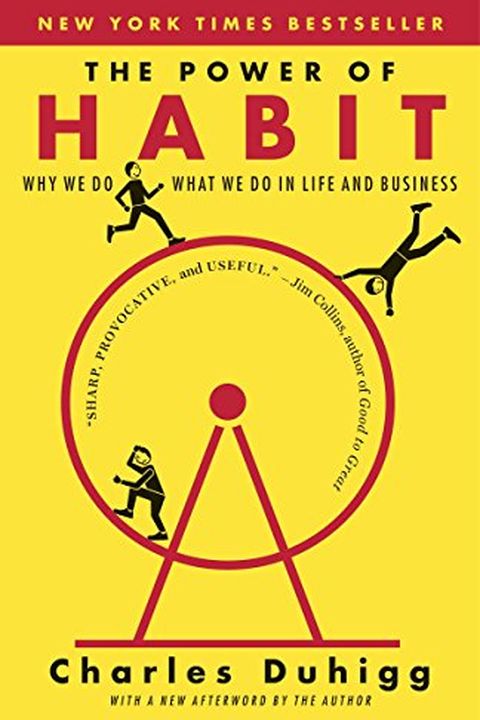The Power of Habit Quotes
Change might not be fast and it isn't always easy. But with time and effort, almost any habit can be reshaped.
Typically, people who exercise, start eating better and becoming more productive at work. They smoke less and show more patience with colleagues and family. They use their credit cards less frequently and say they feel less stressed. Exercise is a keystone habit that triggers widespread change.
Champions don’t do extraordinary things. They do ordinary things, but they do them without thinking, too fast for the other team to react. They follow the habits they’ve learned.
Rather, to change a habit, you must keep the old cue, and deliver the old reward, but insert a new routine.
This process within our brains is a three-step loop. First, there is a cue, a trigger that tells your brain to go into automatic mode and which habit to use. Then there is the routine, which can be physical or mental or emotional. Finally, there is a reward, which helps your brain figure out if this particular loop is worth remembering for the future: THE HABIT LOOP.
As people strengthened their willpower muscles in one part of their lives—in the gym, or a money management program—that strength spilled over into what they ate or how hard they worked. Once willpower became stronger, it touched everything.
Simply giving employees a sense of agency- a feeling that they are in control, that they have genuine decision-making authority - can radically increase how much energy and focus they bring to their jobs.
There's a natural instinct embedded in friendship, a sympathy that makes us willing to fight for someone we like when they are treated unjustly.
All our life, so far as it has definite form, is but a mass of habits - practical, emotional, and intellectual - systematically organized for our weal or woe, and bearing us irresistibly toward our destiny, whatever the latter may be." - William James.
If you want to do something that requires willpower—like going for a run after work—you have to conserve your willpower muscle during the day,.
Habits are powerful, but delicate. They can emerge outside our consciousness, or can be deliberately designed. They often occur without our permission, but can be reshaped by fiddling with their parts. They shape our lives far more than we realize—they are so strong, in fact, that they cause our brains to cling to them at the exclusion of all else, including common sense.
Self-discipline predicted academic performance more robustly than did IQ. Self-discipline also predicted which students would improve their grades over the course of the school year, whereas IQ did not.… Self-discipline has a bigger effect on academic performance than does intellectual talent.
It is facile to imply that smoking, alcoholism, overeating, or other ingrained patters can be upended without real effort. Genuine change requires work and self-understanding of the cravings driving behaviours.
This is how willpower becomes a habit: by choosing a certain behavior ahead of time, and then following that routine when an inflection point arrives.
When you learn to force yourself to practice for an hour or run fifteen laps, you start building self-regulatory strength. A five-year-old who can follow the ball for ten minutes becomes a sixth grader who can start his homework on time.
Whether selling a new song, a new food, or a new crib, the lesson is the same: If you dress a new something in old habits, it’s easier for the public to accept it.
But to change an old habit, you must address an old craving. You have to keep the same cues and rewards as before, and feed the craving by inserting a new routine.
They do ordinary things, but they do them without thinking, too fast for the other team to react. They follow the habits they’ve learned.
